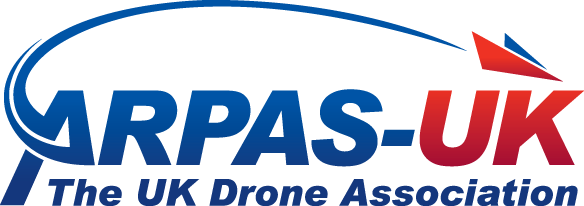The Maritime and Coastguard Agency (MCA) is assessing whether drones could help in its rescue missions.
Last year, the MCA’s civilian search and rescue helicopters responded to an average of seven call-outs a day, saving more than 1,600 people.
Overall, the MCA co-ordinated more than 22,000 incidents and rescued more than 7,000 people across the year.
It will now investigate whether drones could also boost missions by visiting rescue sites ahead of air, sea or land-based recovery teams to provide a full picture of the situation and develop the appropriate response.
It will assess the use of drones for regular and routine flights.
Phil Hanson, the MCA’s aviation technical assurance manager, said the use of drones in search and rescue, counter-pollution and maritime aerial observation operations could potentially increase overall efficiency as well as reduce the risk to personnel.
Maritime Minister Nusrat Ghani said: “Drone technology has enormous potential for our search and rescue teams, who save lives 24 hours a day, seven days a week. This ground-breaking project will not only hope to boost the capabilities of our already fantastic teams but will also boost our ability to spot pollution hazards and protect our precious marine environment.”
The MCA will work with Elbit Systems UK and the Civil Aviation Authority to carry out the demonstrations in the coming months.
Elbit Systems UK has been selected by the British Maritime and Coastguard Agency (MCA) to conduct maritime demonstration flights in the UK, using a number of its unmanned aerial systems (UAS), including the HERMES 900. The demonstration flights are designed to demonstrate the advantages of using long-range unmanned capabilities in civilian airspace, with the ability to deploy multiple sensors on a single platform.
 The company will collaborate closely with the UK Civil Aviation Authority, supported by additional British companies, including Inzpire and ARPAS-UK Member, Aviation Systems Group.
The company will collaborate closely with the UK Civil Aviation Authority, supported by additional British companies, including Inzpire and ARPAS-UK Member, Aviation Systems Group.
“We look forward to providing the best possible support for the lifesaving work of the MCA. This is the latest example of how Elbit Systems UK is delivering proven technologies to support [the] operational needs of UK customers,” commented Martin Fausset, CEO of Elbit Systems UK.
With a wingspan of 15m and a gross weight of 1.2t, the HERMES 900 Maritime Patrol variant is a long-range maritime surveillance system tailored for littoral and blue-water operations. It features maritime radar, an electro optic payload, satellite communication, an automatic identification system receiver and an emergency position-indicating radio beacon receiver. The UAS enables persistent monitoring of large areas of sea and long coastlines, with effective advanced search capabilities to support valuable search and rescue work as well as the identification of potential hazards. Elbit Systems’ SKYLARK I-LEX will also be taking part in the demonstration flights.
This will support the MCA in its existing efforts, providing a 24-hour maritime search and rescue service around the nation’s coast and in the international search and rescue region through HM Coastguard.
“Drone technology has enormous potential for our search and rescue teams, who save lives 24 hours a day, seven days a week. This ground-breaking project will not only hope to boost the capabilities of our already fantastic teams, but will also boost our ability to spot pollution hazards and protect our precious marine environment,” observed Maritime Minister, Nusrat Ghani.

